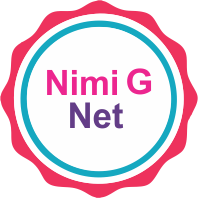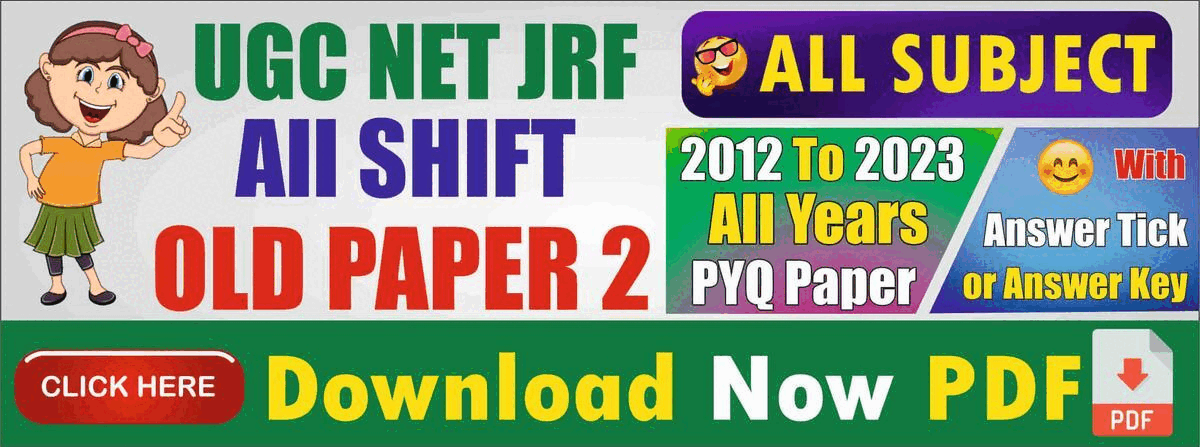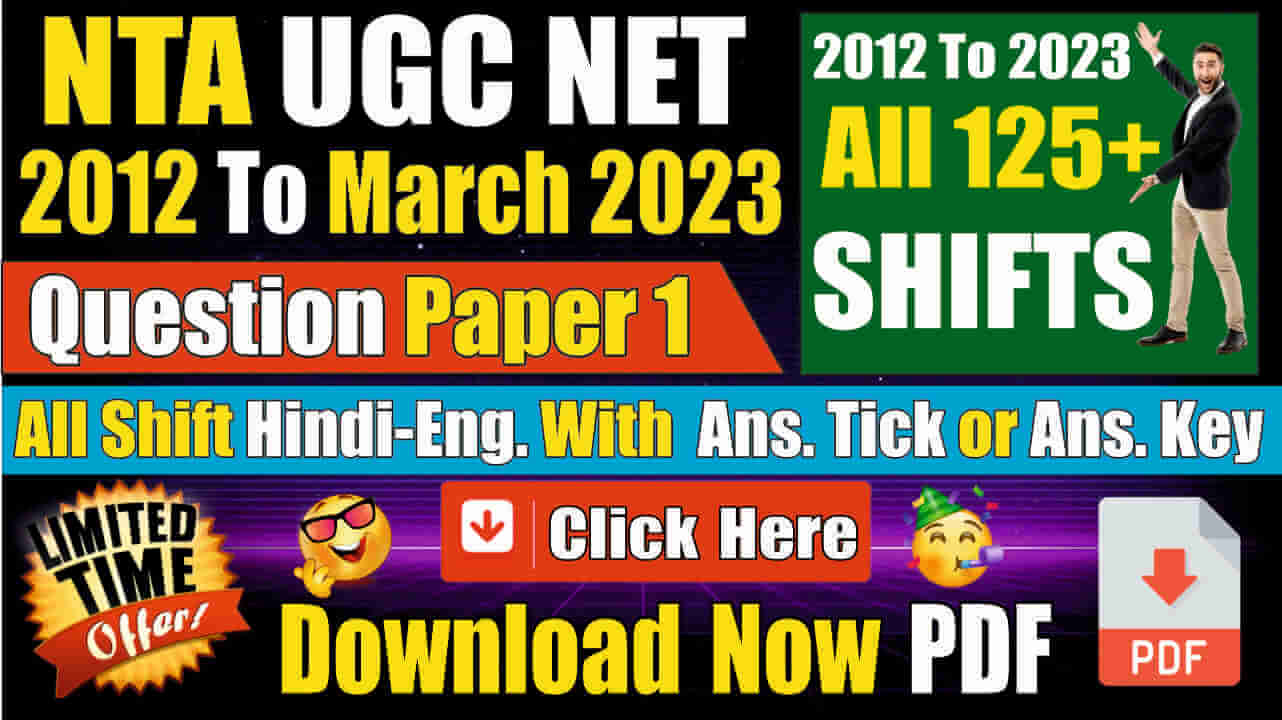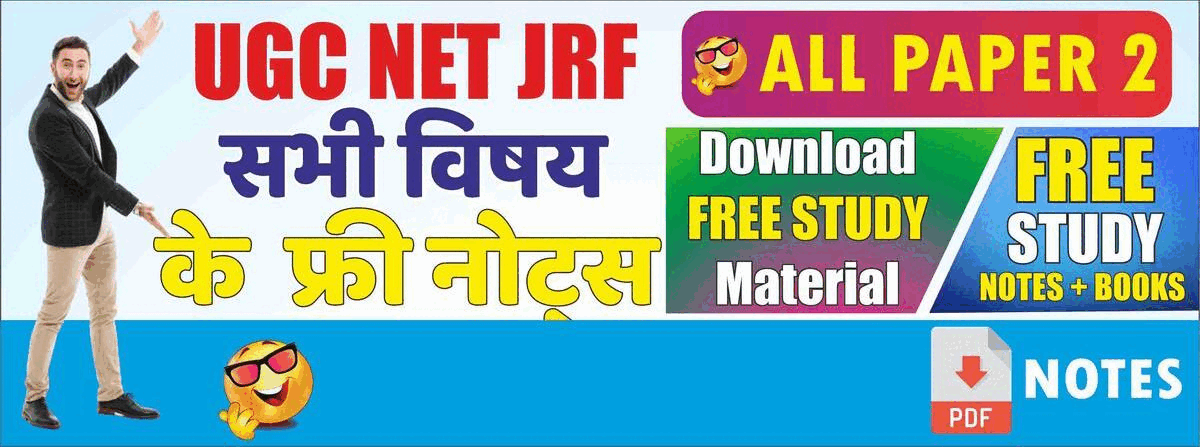Are you searching for the UGC NET Psychology Syllabus 2023 PDF Download? Look no further, as we have compiled all the important details and tips to help you prepare for the exam.
The UGC NET Psychology exam is conducted by the National Testing Agency (NTA) for candidates who wish to pursue a career in the field of Psychology. The exam assesses the candidates’ knowledge in the subject and tests their eligibility for lectureship and research fellowships.
If you are planning to appear for the UGC NET Psychology 2023 exam, it is important to have a thorough understanding of the syllabus and exam pattern. In this article, we have compiled all the important information you need to know about the UGC NET Psychology Syllabus 2023 PDF Download
UGC NET Psychology Exam Pattern 2023:
The UGC NET Psychology exam consists of two papers – Paper 1 and Paper 2. Both papers are conducted on the same day, and the duration of each paper is 3 hours. The exam is conducted online, and each question carries 2 marks. There is no negative marking for incorrect answers.
The UGC NET Psychology Exam consists of two papers: Paper 1 and Paper 2.
Paper 1:
- Duration: 3 hours
- Number of questions: 50
- Total marks: 100
- Type of questions: Multiple Choice Questions (MCQs) based on general aptitude, teaching and research aptitude, and current affairs.
Paper 2:
- Duration: 3 hours
- Number of questions: 100
- Total marks: 200
- Type of questions: MCQs based on Psychology subjects.
Both papers are conducted in a single session with no break in between. The candidates are required to appear for both papers to be considered for the selection process.
It’s important to note that there is no negative marking for incorrect answers in UGC NET Psychology Exam.
UGC NET Psychology Syllabus 2023: Download PDF
The UGC NET Psychology syllabus is divided into two parts – Paper 1 and Paper 2. Here’s a detailed syllabus for both papers.
Paper 1 Syllabus:
Teaching Aptitude:
- Teaching: Nature, objectives, characteristics, and basic requirements.
- Learner’s characteristics: Characteristics of adolescent and adult learners, and individual differences.
- Methods of teaching: Teacher-centered vs. learner-centered methods; Off-line vs. online methods.
- Evaluation systems: Elements and types of evaluation, evaluation in higher education, and grading system.
Research Aptitude:
- Research: Meaning, types, and characteristics.
- Steps of research.
- Methods of research.
- Research Ethics.
Reading Comprehension:
- Comprehension passages.
Communication:
- Communication: Nature, characteristics, types, barriers, and effective communication.
- Verbal and non-verbal communication.
- Classroom communication.
Logical Reasoning:
- Understanding the structure of arguments.
- Evaluating and distinguishing deductive and inductive reasoning.
- Verbal analogies.
Data Interpretation:
- Sources, acquisition, and interpretation of data.
- Quantitative and qualitative data.
- Graphical representation and mapping of data.
Paper 2 Syllabus:
Nta Ugc Net Psychology Syllabus 2023 in English
Here you can check the latest UGC NET Syllabus For Psychology Paper-II 2021 for English Medium.
Unit 1: Emergence of Psychology
- Psychological thought in some major Eastern Systems: Bhagavad Gita, Buddhism, Sufism and Integral Yoga.
- Academic psychology in India: Pre-independence era; post-independence era;
- 1970s: The move to addressing social issues;
- 1980s: Indigenization;
- 1990s: Paradigmatic concerns, disciplinary identity crisis;
- 2000s: Emergence of Indian psychology in academia.
- Issues: The colonial encounter; Post colonialism and psychology; Lack of distinct disciplinary identity.
- Western: Greek heritage, medieval period and modern period. Structuralism, Functionalism, Psychoanalytical, Gestalt, Behaviorism, Humanistic-Existential, Transpersonal, Cognitive revolution, Multiculturalism. Four founding paths of academic psychology – Wundt, Freud, James, Dilthey. Issues: Crisis in psychology due to strict adherence to experimental-analytical paradigm (logical empiricism). Indic influences on modern psychology.
- Essential aspects of knowledge paradigms: Ontology, epistemology, and methodology.
- Paradigms of Western Psychology: Positivism, Post-Positivism, Critical perspective, Social Constructionism, Existential Phenomenology, and Co-operative Enquiry. Paradigmatic Controversies.
- Significant Indian paradigms on psychological knowledge: Yoga, Bhagavad Gita, Buddhism, Sufism, and Integral Yoga. Science and spirituality (avidya and vidya). The primacy of self-knowledge in Indian psychology.
Unit 2: Research Methodology and Statistics
- Research: Meaning, Purpose, and Dimensions.
Research problems, Variables and Operational Definitions, Hypothesis, Sampling.
Ethics in conducting and reporting research
- Paradigms of research: Quantitative, Qualitative, Mixed methods approach
- Methods of research: Observation, Survey [Interview, Questionnaires], Experimental, Quasi-experimental, Field studies, Cross-Cultural Studies, Phenomenology, Grounded theory, Focus groups, Narratives, Case studies, Ethnography
- Statistics in Psychology: Measures of Central Tendency and Dispersion. Normal Probability Curve. Parametric [t-test] and Non-parametric tests [Sign Test, Wilcoxon Signed rank test, Mann-Whitney test, Kruskal-Wallis test, Friedman]. Power analysis. Effect size.
Correlational Analysis: Correlation [Product Moment, Rank Order], Partial correlation, multiple correlation.
Special Correlation Methods: Biserial, Point biserial, tetrachoric, phi coefficient.
- Regression: Simple linear regression, Multiple regression.
- Factor analysis: Assumptions, Methods, Rotation and Interpretation.
- Experimental Designs: ANOVA [One-way, Factorial], Randomized Block Designs, Repeated Measures Design, Latin Square, Cohort studies, Time series, MANOVA, ANCOVA. Single-subject designs.
Unit 3: Psychological testing
- Types of tests
- Test construction: Item writing, item analysis
Test standardization: Reliability, validity and Norms
- Areas of testing: Intelligence, creativity, neuropsychological tests, aptitude, Personality assessment, interest inventories
Attitude scales – Semantic differential, Staples, Likert scale.
- Computer-based psychological testing
Applications of psychological testing in various settings: Clinical, Organizational and business, Education, Counseling, Military. Career guidance.
Unit 4: Biological basis of behavior
- Sensory systems: General and specific sensations, receptors and processes
- Neurons: Structure, functions, types, neural impulse, synaptic transmission. Neurotransmitters.
The Central and Peripheral Nervous Systems – Structure and functions. Neuroplasticity.
- Methods of Physiological Psychology: Invasive methods – Anatomical methods, degeneration techniques, lesion techniques, chemical methods, microelectrode studies. Non-invasive methods – EEG, Scanning methods.
- Muscular and Glandular system: Types and functions
Biological basis of Motivation: Hunger, Thirst, Sleep and Sex.
- Biological basis of emotion: The Limbic system, Hormonal regulation of behavior.
- Genetics and behavior: Chromosomal anomalies; Nature-Nurture controversy [Twin studies and adoption studies]
Unit 5: Attention, Perception, Learning, Memory, and Forgetting
- Attention: Forms of attention, Models of attention
Perception:
- Approaches to the Study of Perception: Gestalt and physiological approaches
- Perceptual Organization: Gestalt, Figure and Ground, Law of Organization
- Perceptual Constancy: Size, Shape, and Color; Illusions
Perception of Form, Depth and Movement
Role of motivation and learning in perception
- Signal detection theory: Assumptions and applications
Subliminal perception and related factors, information processing approach to perception, culture and perception, perceptual styles, Pattern recognition, Ecological perspective on perception.
- Learning Process:
- Fundamental theories: Thorndike, Guthrie, Hull
- Classical Conditioning: Procedure, phenomena and related issues
- Instrumental learning: Phenomena, Paradigms and theoretical issues; Reinforcement: Basic variables and schedules;
- Behaviour modification and its applications
Cognitive approaches in learning: Latent learning, observational learning.
- Verbal learning and Discrimination learning
Recent trends in learning: Neurophysiology of learning
Memory and Forgetting
- Memory processes: Encoding, Storage, Retrieval
- Stages of memory: Sensory memory, Short-term memory (Working memory), Long-term Memory (Declarative – Episodic and Semantic; Procedural)
Theories of Forgetting: Interference, Retrieval Failure, Decay, Motivated forgetting
Unit 6: Thinking, Intelligence and Creativity
- Theoretical perspectives on thought processes: Associationism, Gestalt, Information processing, Feature integration model
- Concept formation: Rules, Types, and Strategies; Role of concepts in thinking Types of Reasoning
Language and thought
- Problem solving: Type, Strategies, and Obstacles
- Decision-making: Types and models
- Metacognition: Metacognitive knowledge and Metacognitive regulation
- Intelligence: Spearman; Thurstone; Jensen; Cattell; Gardner; Stenberg; Goleman; Das, Kar & Parrila
- Creativity: Torrance, Getzels & Jackson, Guilford, Wallach & Kogan
- Relationship between Intelligence and Creativity
Unit 7: Personality, Motivation, emotion, stress and coping
- Determinants of personality: Biological and socio-cultural
- Approaches to the study of personality: Psychoanalytical, Neo-Freudian, Social learning, Trait and Type, Cognitive, Humanistic, Existential, Transpersonal psychology.
- Other theories: Rotter’s Locus of Control, Seligman’s Explanatory styles, Kohlberg’s theory of Moral development.
- Basic motivational concepts: Instincts, Needs, Drives, Arousal, Incentives, Motivational Cycle.
- Approaches to the study of motivation: Psychoanalytical, Ethological, S-R Cognitive, Humanistic
Exploratory behavior and curiosity
Zuckerman’s Sensation seeking
Achievement, Affiliation and Power
Motivational Competence
Self-regulation
Flow
- Emotions: Physiological correlates
- Theories of emotions: James-Lange, Canon-Bard, Schachter and Singer, Lazarus, Lindsley.
Emotion regulation
- Conflicts: Sources and types
- Stress and Coping: Concept, Models, Type A, B, C, D behaviors, Stress management strategies [Biofeedback, Music therapy, Breathing exercises, Progressive Muscular Relaxation, Guided Imagery, Mindfulness, Meditation, Yogasana, Stress Inoculation Training].
- Nature, scope and history of social psychology
Traditional theoretical perspectives: Field theory, Cognitive Dissonance, Sociobiology, Psychodynamic Approaches, Social Cognition.
- Social perception [Communication, Attributions]; attitude and its change within cultural context; prosocial behavior
- Group and Social influence [Social Facilitation; Social loafing]; Social influence [Conformity, Peer Pressure, Persuasion, Compliance, Obedience, Social Power, Reactance]. Aggression. Group dynamics, leadership style and effectiveness. Theories of intergroup relations [Minimal Group Experiment and Social Identity Theory, Relative Deprivation Theory, Realistic Conflict Theory, Balance Theories, Equity Theory, Social Exchange Theory]
- Applied social psychology: Health, Environment and Law; Personal space, crowding, and territoriality.
Unit 9: Human Development and Interventions
- Developmental processes: Nature, Principles, Factors in development, Stages of Development. Successful aging.
Theories of development: Psychoanalytical, Behavioristic, and Cognitive
- Various aspects of development: Sensory-motor, cognitive, language, emotional, social and moral.
Psychopathology: Concept, Mental Status Examination, Classification, Causes
- Psychotherapies: Psychoanalysis, Person-centered, Gestalt, Existential, Acceptance Commitment Therapy, Behavior therapy, REBT, CBT, MBCT, Play therapy, Positive psychotherapy, Transactional Analysis, Dialectic behavior therapy, Art therapy, Performing Art Therapy, Family therapy.
- Applications of theories of motivation and learning in School
- Factors in educational achievement
- Teacher effectiveness
- Guidance in schools: Needs, organizational setup and techniques
- Counselling: Process, skills, and techniques
Unit 10: Emerging Areas
- Issues of Gender, Poverty, Disability, and Migration: Cultural bias and discrimination. Stigma, Marginalization, and Social Suffering; Child Abuse and Domestic violence.
- Peace psychology: Violence, non-violence, conflict resolution at macro level, role of media in conflict resolution.
- Wellbeing and self-growth: Types of wellbeing [Hedonic and Eudemonic], Character strengths, Resilience and Post-Traumatic Growth.
- Health: Health promoting and health compromising behaviors, Life style and Chronic diseases [Diabetes, Hypertension, Coronary Heart Disease], Psychoneuroimmunology [Cancer, HIV/AIDS]
- Psychology and technology interface: Digital learning; Digital etiquette: Cyber bullying; Cyber pornography: Consumption, implications; Parental mediation of Digital Usage
Paper 2 Syllabus Download Pdf:
Ugc Net Psychology Syllabus 2023 in English
Ugc Net Psychology Syllabus 2023 in Hindi
Preparation Tips for UGC NET Psychology Exam 2023:
Here are some tips for preparing for the UGC NET Psychology exam 2023:
- Understand the syllabus and exam pattern thoroughly.
- Make a study plan
- Refer to standard textbooks and study materials recommended for the exam.
- Practice previous year question papers and mock tests.
- Focus on time management and accuracy while attempting the questions.
- Take regular breaks and maintain a healthy lifestyle to avoid burnout.
- Join coaching classes or online courses if necessary.
- Stay updated with current affairs related to the Psychology field.
Important Points:
- The UGC NET Psychology exam is conducted by NTA for candidates who wish to pursue a career in Psychology.
- The exam assesses the candidates’ knowledge in the subject and tests their eligibility for lectureship and research fellowships.
- The exam pattern of UGC NET Psychology 2023 includes multiple-choice questions and is conducted in online mode.
- The marking scheme of the exam is +2 for a correct answer and no negative marking for incorrect answers.
- The duration of the exam is 3 hours, and the number of questions is 150.
- The UGC NET Psychology Syllabus 2023 PDF Download is an important document that provides a detailed outline of the topics that will be covered in the exam.
- To download the syllabus, candidates can visit the official website of NTA and click on the link provided.
- The syllabus is available in PDF format and can be downloaded for free.
- The syllabus is divided into nine units, each covering a specific topic related to Psychology.
- To prepare for the exam, candidates must understand the syllabus, make a study plan, practice previous year question papers, join a coaching institute, take mock tests, and revise regularly.
FAQs:
- Is there any negative marking in the UGC NET Psychology exam 2023? Ans: No, there is no negative marking for incorrect answers.
- Can I download the UGC NET Psychology Syllabus 2023 PDF from the official website? Ans: Yes, the syllabus is available for download on the official website of NTA.
- What is the duration of the UGC NET Psychology exam 2023? Ans: The duration of each paper is 3 hours.
Also Check:
Conclusion:
In conclusion, the UGC NET Psychology exam 2023 is a crucial opportunity for aspirants who want to pursue a career in the teaching or research field. To crack the exam, it’s essential to have a clear understanding of the syllabus, exam pattern, and prepare accordingly. With a comprehensive understanding of the UGC NET Psychology Syllabus 2023 PDF download and proper preparation, you can clear the exam with flying colors.





